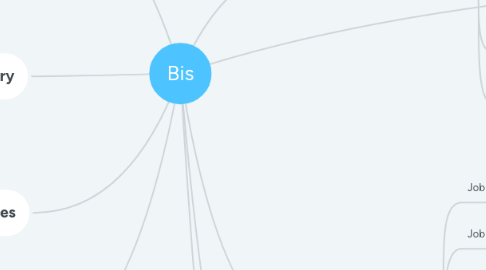
1. Profit sharing
1.1. Disadvantages
1.1.1. The salaries of the individual employees go up equally, not on the basis of merit or promotion.
1.2. Advantages
1.2.1. Profit sharing refers to monetary benefits offered to the employees by the employer apart from salary and bonuses.
2. Taylor's theory
2.1. Taylors motivation
2.1.1. Theory is premised on the fact that employees are motivated to be productive by one thing. Money. Because of this, Taylor believed that management should exercise close control over employees, to ensure that they were getting their money's worth.
3. Price Rates
3.1. Definiton
3.1.1. The price rate of change is simply the percentage change in a security's price between two periods.
4. Salary
4.1. Meaning
4.1.1. is a form of payment from an employer to an employee, which may be specified in an employment contract.
4.2. Advantages
4.2.1. directly linked to the performance of the business
4.3. Disadvantages
4.3.1. Reduce the dividend to shareholder or reduce to the amount available to be reinvested into a business
5. which Maslow classified into two categories: (i) esteem for oneself (dignity, achievement, mastery, independence) and (ii) the desire for reputation or respect from others (e.g., status, prestige).
6. Maslow hirachy
6.1. Love and belongingness needs
6.1.1. after physiological and safety needs have been fulfilled, the third level of human needs is social and involves feelings of belongingness. The need for interpersonal relationships motivates behavior
6.2. Esteem needs
6.3. Self-actualization needs
6.3.1. realizing personal potential, self-fulfillment, seeking personal growth and peak experiences. A desire “to become everything one is capable of becoming”(Maslow, 1987, p. 64).
6.4. Physiological needs
6.4.1. these are biological requirements for human survival, e.g. air, food, drink, shelter, clothing, warmth, sex, sleep.
6.5. Safety needs
6.5.1. protection from elements, security, order, law, stability, freedom from fear.
7. Non-Financial
7.1. Job Rotation
7.1.1. workers switch to different task to increase variety
7.2. Job Enlargement
7.2.1. Increasing or widening task to increase variety.
7.3. Job enrichment
7.3.1. Organising task so workers are able to use their full ability.
7.4. Quality circle
7.4.1. Group of worker meet on a regular basis to discuss work related to there problem.
7.5. Team working
7.5.1. Organising production so group of workers complete the whole unit of work.
7.6. Delegation
7.6.1. Passing authorities to lower level workers to complete task
8. Commission
8.1. Meaning
8.1.1. pay base by the value of sales made by staff.This methos is only ever used to reward sales stuff
8.2. Advantages
8.2.1. The payment is linked to the value of good sold.
8.3. Disadvantages
8.3.1. Workers never certain about how much they will earn and this cause business spend more time and money on recruiting and training new workers.
9. Bonus Schemes
9.1. Definition
9.1.1. is a method of performance target workers receive an additional payment for achieving a target set by manager
9.2. Disadvantage
9.2.1. target set are unrealistic than workers could became demotivated not the same.
9.3. Advantages
9.3.1. the payment is limited to performance target workers can get a bonus if they incraese.Their productivity reduce average cost
